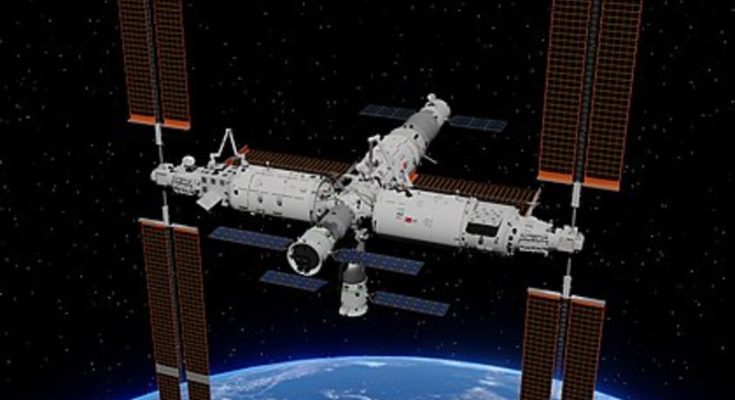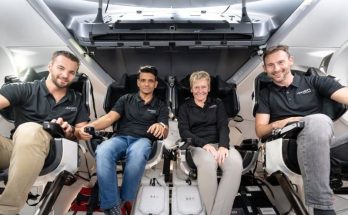Jiuquan/China/IBNS: China sent three astronauts, including the first Chinese civilian in orbit, to the Tiangong space station via a Long March 2F rocket. The Shenzhou-16 crew safely docked at the Tianhe core module of the space station several hours later, following the launch at the Jiuquan Satellite Launch Centre.
The successful launch marks China’s commitment to becoming a major player in space exploration, with plans to send a crewed mission to the Moon by 2030.
The Chinese government has invested billions of dollars in its military-run space program to catch up with the United States and Russia, making it the world’s second-largest economy.
Commander Jing Haipeng, on his fourth mission, leads the crew of Shenzhou-16. The team also includes engineer Zhu Yangzhu and Gui Haichao, a professor from Beihang University and the first Chinese civilian to venture into space, reported AFP.
The launch was met with excitement and support from spectators, including employees from the space program who captured selfies with the rocket in the background. Children waved Chinese flags, adding to the celebratory atmosphere.
Tiangong, meaning “heavenly palace,” is a pivotal part of China’s space program. It is the crown jewel that follows the country’s notable achievements in landing robotic rovers on Mars and the Moon. Shenzhou-16 is the first mission to Tiangong during its “application and development” stage, according to authorities.
During their mission, the crew will conduct various experiments, including research on high-precision space time-frequency systems, general relativity, and the origins of life. The Tiangong space station was recently resupplied with essential resources like drinking water, clothing, food, and propellant to support the arrival of the Shenzhou-16 crew.
China aims to establish a moon base and achieve its first crewed lunar landing by 2030. President Xi Jinping has actively supported China’s “space dream,” and the country’s space agency, CMSA, is actively seeking international cooperation for its projects.
Tiangong will remain in low Earth orbit for at least ten years, continuously manned by rotating teams of three astronauts.
The next mission, Shenzhou-17, is expected to launch in October, representing China’s commitment to regular crew rotations and the steady progress of its space program.
#China, #XiJinPing, #TiangongSpaceStation





